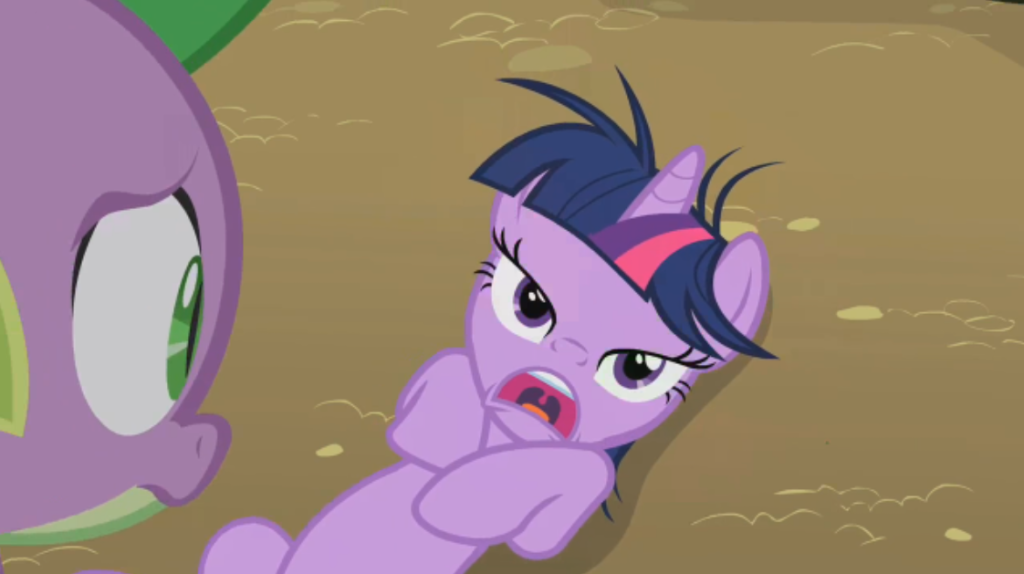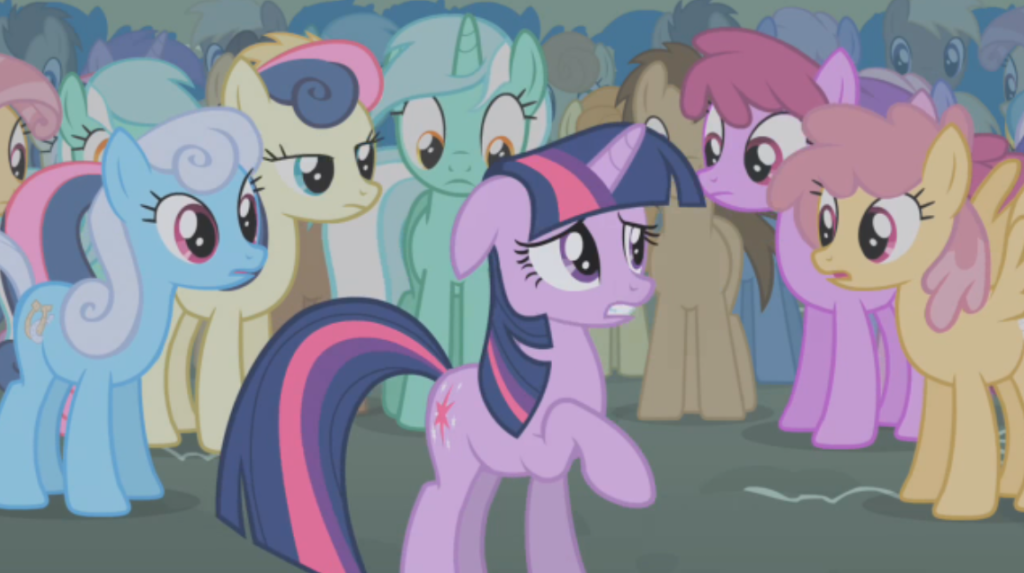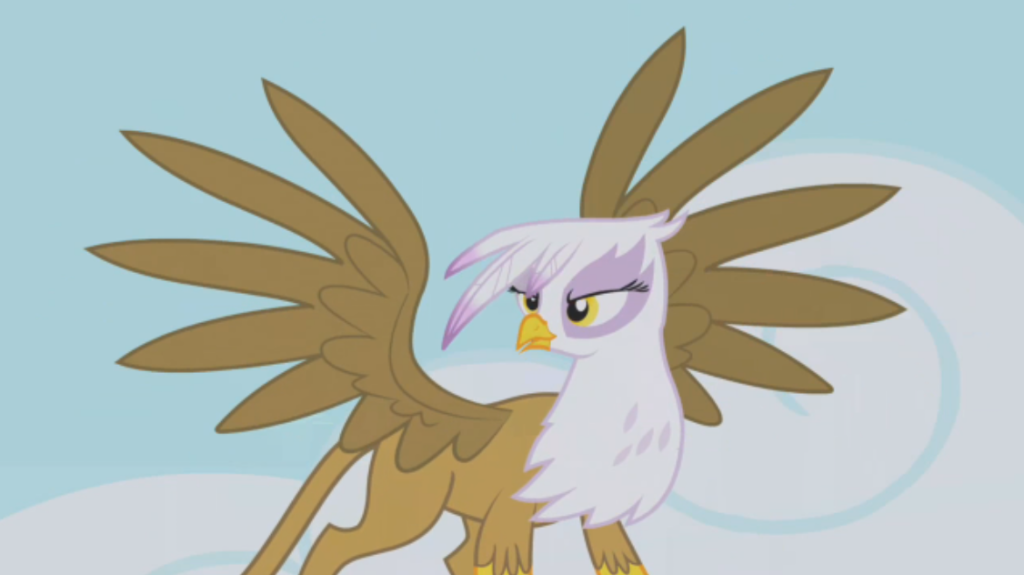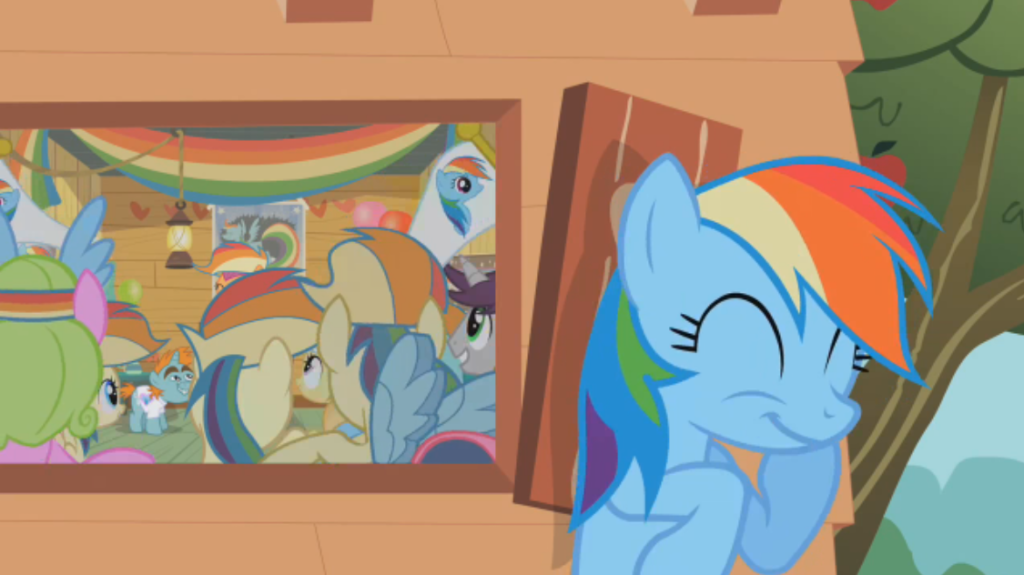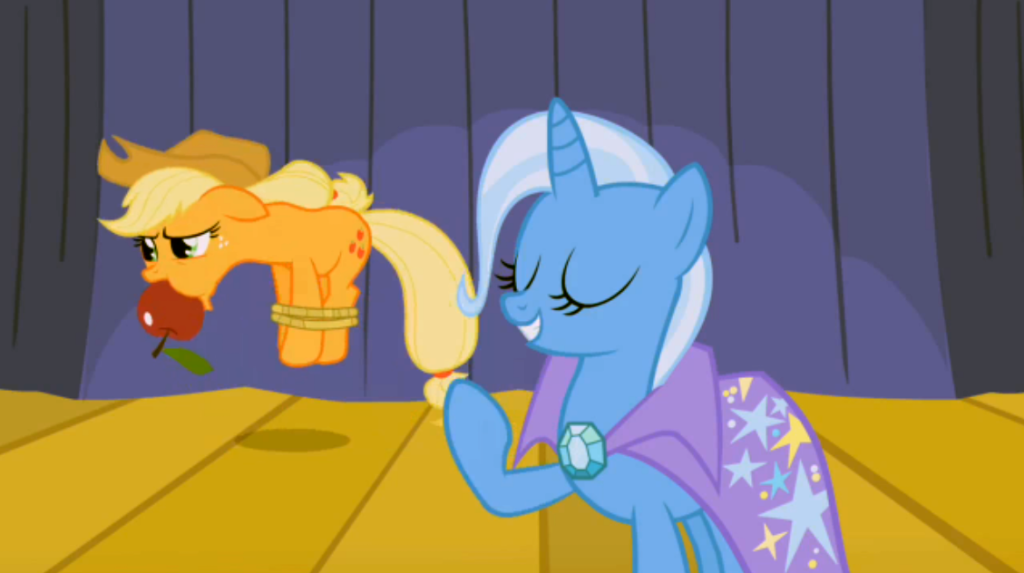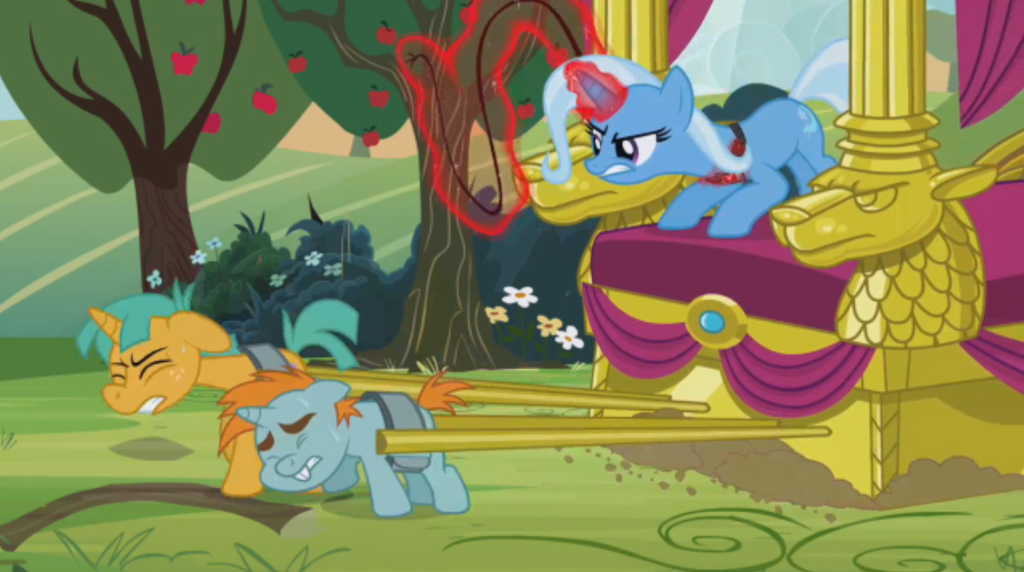Psychology of Writing: Aggressive Personalities (Part 1)
The definitions I’m using in this post are from the book “In Sheep’s Clothing” by Dr. George Simon, a psychology book that is sometimes dismissed as being more of a self-help book in that the definitions used have not been accepted into the Diagnostic and Statistical Manual (DSM), and it’s designed for people to help themselves regain control while within an abusive relationship. While terms used here are similar to those in the DSM, the definitions and criteria for diagnosis may be different. Do what you will with using this in your daily relationships, but in terms of writing, this is a good framework.
Whether you’re looking at this as psychological truth or not “In Sheep’s Clothing” lists useful character archetypes, what they want, how they think, and their motives for seeking control, and most importantly this list is a series of maladaptive ways in which people try to get what they want.
As scenes are constructed for conflict (two forces struggling against each other to get their way) it’s a good lens to view who your characters are or might be when engaged in a scene.
It’s important to note that people may and will have traits of any of these disorders, but it is when one’s tendencies towards these traits cause intolerable pain to those in their lives or otherwise become destructive that these traits would be considered a disorder. Also a single person may have traits from numerous disorders.
Finally, this is not a complete listing, and people who otherwise are not manipulative people may use covert aggression (manipulative tactics) from time to time. There will be more on manipulative tactics later on.
Before we get into the types of aggressive personalities that Dr. Simon lays out, lets look at what he defines as a healthy baseline.
Assertive Personalities
An easy way to remember this personality type is to associate it with Twilight Sparkle…when she’s not being a total spaz.
An assertive personality is essentially a person doesn’t use unfair amounts of power to get their way. They do not bully, manipulate, or otherwise force their way to a solution, but usually can use reason to come to some sort of compromise. This type of person loves to create win-win situations. At the same time this person might get aggressive if the person they’re dealing with is unreasonable or dangerous. An assertive personality doesn’t allow themselves to be victimized but also doesn’t set out to victimize others. The goal of this person is harmony, not control. Though if they have to take control to establish harmony, then they will. Sometimes reluctantly.
Most people hear this description and go “Yes, this is me,” and it may be you. The problem is that the way human beings think, it’s hard to have the proper sense of self awareness to realize if this is how we’re being or not. For instance, when was the last time you were wrong in an argument? You probably weren’t overly concerned in that fight about how unfair you were being because you probably thought you were being great and the other person was being terrible. Normally people don’t go into an argument knowing they’re wrong (unless they’re trolls). And people don’t typically tend to take action knowing that it’s completely unreasonable (unless they’re emotionally unstable at the moment and really don’t care). Because of this, it may seem like everyone else is more unreasonable than we ourselves are. Odds are you’re not elevated above everyone else, but actually kinda average.
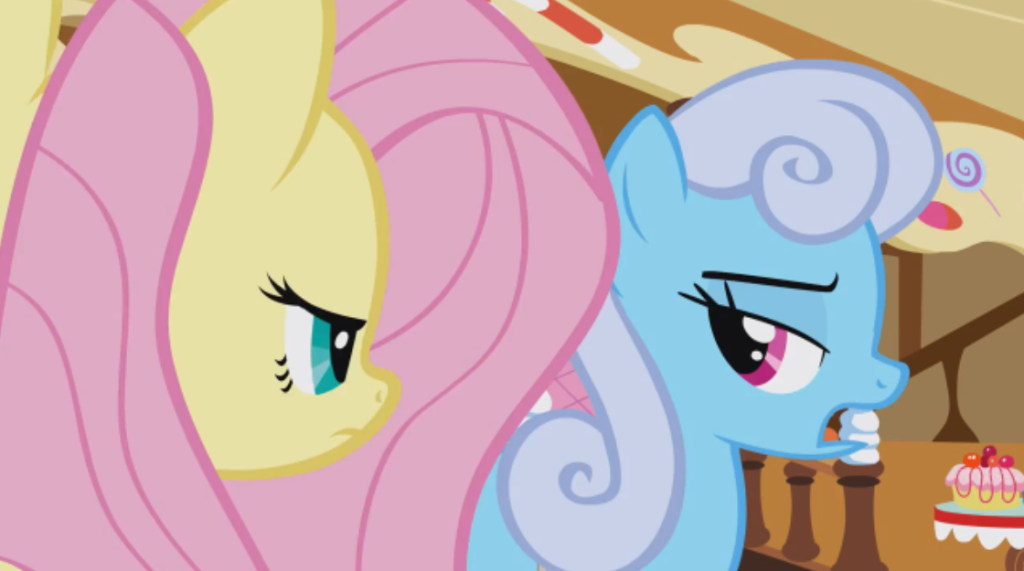
“Fluttershy, you’re being so unreasonable. I didn’t cut in front of you; I redistributed your front of the line privilege.”
Now for the negative personality types. And remember these personality types or a person showing traits of these personalities doesn’t necessarily make them a bad person, but is just a means in which some of us get what we want. Though on a case by case basis this is what drives a lot of us into “bad person” territory. Also this never is to say that a person cannot learn to overcome these behaviors, though it gets difficult with age and usually the person has to see their own faults and want to change. The early writing on “My Little Pony” tended to understand this, not making it’s villains outright evil, but more making them have wants and methodologies of getting these wants which created disharmony.
Aggressive Personality Disorder
While all of the negative personality types I’m going to discuss below and in the next post will be aggressive personality types, those with Aggressive Personality Disorder tend to be more simple.
They find the easiest way to get what they want is to use a level of force most people aren’t willing to do. This can be yelling and screaming at people. It can be using physical force when none is necessary. It can be using your car as a battering ram to make the person in front of you move.
Take Gilda for example.
If they want an apple, they might just take it. If they want you to leave, they might make you leave. They want you out of the way, they take you out of the way. They might believe the way to the top is to pull down the person in front of you.This person bullies their way through life using one form of strength or another to leverage an unfair advantage. They just find that either it’s easier to be this way or the world is such that they must be this way. They may not know how to get what they want from the world without force.
Narcissistic Personality Disorder
We’re going to distinguish between predatory and non-predatory narcissists as I think they make very different characters. For the non-predatory…
Think of Rainbow Dash.
It’s believed that narcissism is caused by praising children for something they are rather than something they do. When you praise someone for being smart, beautiful, or — let’s just say — the fastest, then you build this idea that the person you’re talking to is just better than others. Somehow they’re special and above the rules, and it’s for reasons beyond their control. Now it’s important for someone to feel special, but that praise is supposed to come from actions and good deeds. The latter style of praise motivates people to do things for others. The former style of praise causes people to feel expectant of others to always acknowledge their greatness.
Their egos aren’t exactly frail, but they’re always hungry and desperate for that validation of greatness. If not receiving that validation, they can get desperate, aggressive, insecure, and/or depressed. In “The Mysterious Mare Do Well” we see Rainbow Dash do all of these things in search of that validation. This need and its pursuits can ruin relationships.
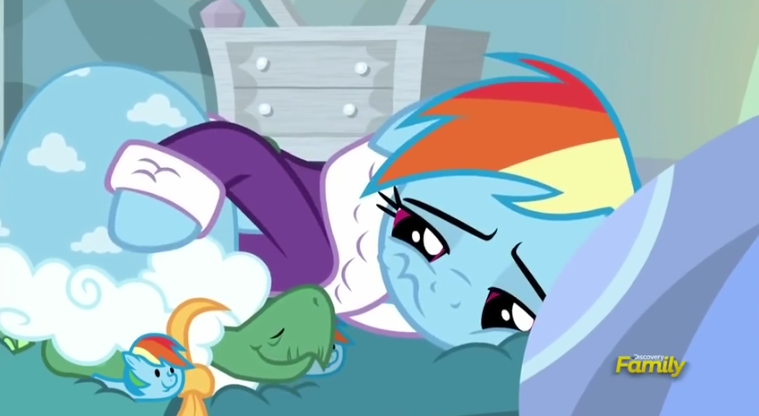
The overt imagery in this scene highlights this episode’s major theme: Rainbow is so self-obsessed that she cannot actually love Tank. She is unaware of who he is as she’s busy projecting who she is onto him. She makes a land animal fly. She wants him to be an extreme sports athlete. She can’t accept him hibernating because it makes Tank different and the only thing she can ever love is herself. That is profoundly sad.
This is different from a healthy sense of self-esteem. This is a form of selfishness that consistently hurts others and causes negative effects on the narcissist’s life. A narcissist might believe that they’re above the rules: “When I cheated it was different…” They might make unreasonable demands and then honestly fail to see why you aren’t giving in: “I want you to stop hanging out with your best friend.” Or they might just neglect or forget things that are important to you because they’re wrapped up in themselves. They are often completely unaware of how they’re harming the people they love because other people don’t matter as much.
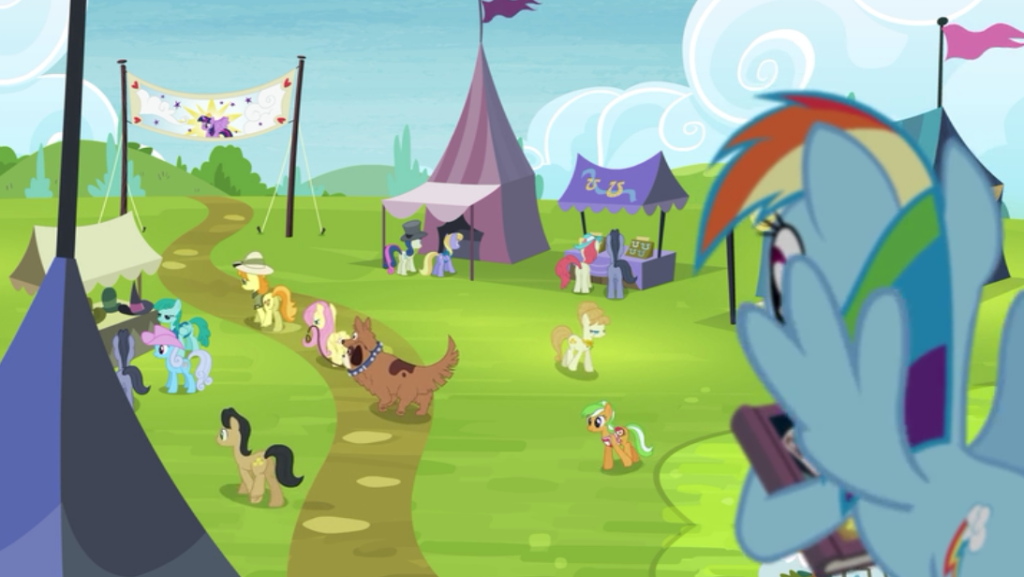
“I traded my friend into slavery just so I could get what I want. Who could be so careless about someone else’s needs? Oh, a narcissist.”
Narcissistic Personality Disorder (Predatory)
I’d associate this one with (The Great and Powerful) Trixie.
As the name implies a predatory narcissist feels good by hurting, shaming, or otherwise making other people suffer. They need to be seen as the best, not through their own accomplishments, but through belittling the accomplishments of others.
It’s essentially a see-saw mentality: I am only great if you’re not great…and I need to be great. So guess what’s happening to you….”
Often times the defense of aggressive personalities is “They don’t know that they’re doing it” or “They aren’t doing it intentionally.” That’s as if that makes their behaviors not damaging or okay. But this defense usually isn’t wrong. An aggressive person might not notice the ways in which they’re destroying harmony. Or they might feel that they’re the ones who are actually restoring harmony, and everyone else is constantly making things not work.
Upcoming posts
Psychology of Writing: Aggressive Personalities (Part 2)
Psychology of Writing and Scene Construction

